Accreditation & Outcomes
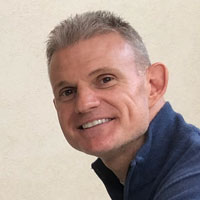
Joseph R. George ‘06, M.A., LPC
Counselor, Walworth Barbour American International School, Israel
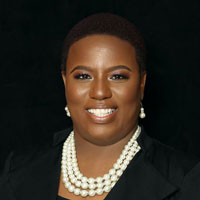
Orma Smith ‘08, M.A., LPC, SCL
Consultant/Owner, Orma Smith Consulting
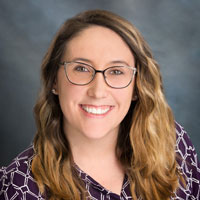
Michelle Marshbanks ‘16, M.A., LPC CAADC
Clinical Supervisor, Meridian Health Services

Rusmira Bektas ‘17, M.A., LPC
Director of Substance Use, Region 10, PIHP
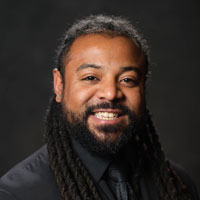 Timothy Ossman ‘17, M.A., LPC
Timothy Ossman ‘17, M.A., LPCSchool Counselor, Fitzgerald High School
Therapist, Great Lakes Psychology Group
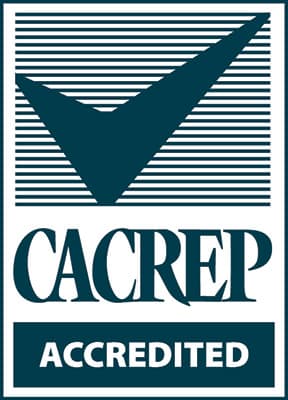
Accreditation Status
The master's degree programs in Addiction Counseling, Clinical Mental Health Counseling, and School Counseling at University of Detroit Mercy are accredited by the Council on Accreditation of Counseling and Related Educational Programs (CACREP), the national accrediting body for graduate programs in Counseling. University of Detroit Mercy's Counseling programs are fully reaccredited through October, 2025.
Counseling Program Outcomes
A maximum of 56 students are typically enrolled in the University of Detroit Mercy Counseling program with approximately twelve graduating each year. The Counseling Program accepts a maximum of 16 students each year. Approximately 95% of enrolled students who complete two full semesters are retained in the program and graduate within the expected time period of three years. Our graduates consistently achieve high pass rates on licensure and state certification examinations and typically achieve employment as a counselor within 2 weeks of graduation while over the last two years, all of our have been offered employment during their internship. The target employment outcome goal for graduates of Detroit Mercy's Master's programs in Counseling is within one month post-graduation.
2024-25 Outcomes
From August, 2024 to August, 2025, twenty (20) Counseling students graduated from the University of Detroit Mercy with a Master of Arts degree. The graduates specialized in the following: Addiction Counseling (n = 3), Clinical Mental Health Counseling (n = 13), and School Counseling (n = 4). All twenty graduates secured employment within 2 weeks of graduation while 18 of the 20 were offered employment by their internship organization. As of August, 2025, two graduates that took the National Counselor Exam passed the exam. Most graduates take the exam within the first year following graduation.
In addition, all (4/4; 100%) of the School Counseling graduates passed the Michigan Test for Teacher Certification prior to graduation. Each Addiction Counseling graduate working within an organization requiring substance use certification (due to receiving federal substance use funding), either acquired state substance use certification or initiated a development plan for substance use certification.
Of the twenty graduates who completed the first two semesters of the Counseling program, all went on to successfully complete the Master's degree resulting in a 100% program completion rate.
Mission
Our mission is to train highly competent and compassionate professional counselors who are able to apply evidence-based knowledge to a wide variety of real-life problems in various clinical and school settings. With a focus on advocacy and social justice, we strive to cultivate ethical, reflective, and accountable counselors who apply critical thinking and empathy to their work with individuals, families, and communities.
Counseling Student Core Learning Outcomes
All Detroit Mercy Counseling students will acquire knowledge and skills that demonstrate each of the following eight core learning objectives:
1. Develop comprehensive knowledge of the various aspects related to the profession of counseling including but not limited to ethical and legal standards of practice, advocacy, and professional roles and conduct as evaluated by successful completion of CNS 5350, CNS 5360, CNS 5720 and CNS 6040.
2. Develop a comprehensive understanding of multicultural issues and strategies to eliminate oppression, prejudice and discrimination, and the demonstration of culturally-competent clinical practices as evaluated by successful completion of CNS 5320 and CNS 5850.
3. Develop a comprehensive understanding of the nature and needs of persons and families at all developmental levels and across the lifespan in a multicultural society as evaluated by successful completion of CNS 5020, CNS 5490, CNS 5600 and CNS 5920.
4. Develop comprehensive knowledge of the nature and needs of individuals related to career development, work and life-related issues in a multicultural society as evaluated by successful completion of CNS 5380.
5. Develop comprehensive knowledge of counseling theories, models and clinical practice in a multicultural society as evaluated by successfully completion of CNS 5120, CNS 5390, CNS 5490, CNS 5600 and CNS 5850.
6. Develop comprehensive knowledge of group counseling theories and models, group factors, and group facilitator competencies as evaluated by successful completion of CNS 5430.
7. Develop comprehensive knowledge of assessment processes to evaluate a range of clinical, social, academic, and career-related issues in a multicultural society as evaluated by successful completion of CNS 5450 and CNS 5850.
8. Develop a comprehensive understanding of research methods, statistical analysis, needs assessment, and program evaluation to inform effective and accountable counseling services in a multicultural society as evaluated by successful completion of CNS 5000 and CNS 5360.
Ten Years Strong: Detroit Mercy Counseling Program Continues to Lead the National Initiative to Expand the Behavioral Health Workforce!
Over the past ten years, the Counseling program has received three federal grants, totaling more than $2.5 million to provide specialized training to Counselors in its efforts to enhance the behavioral health workforce in southeastern Michigan. Led by Dr. Nancy Calleja, Project Director and Department Chair, the Detroit Mercy project has specifically focused on providing enhanced training to work with system-involved individuals and other highly vulnerable populations.
By January, 2018, 92% of the first year WARY Fellows were employed immediately upon graduation, surpassing the project goal of 80%. The Working with At-Risk Youth (WARY) Fellowship program provided enhanced training to Counseling students in an effort to expand the local behavioral health workforce with clinicians specializing in the treatment of youth with complex needs. The project was part of a national initiative funded by the Health Services and Resources Administration.
In 2017, Dr. Calleja was awarded another 4 year federal grant to implement the CUSP Fellowship program, continuing to provide enhanced training to Counseling students to specialize with the most vulnerable populations. The CUSP Fellowship program is the second iteration of the federally funded grant program, further expanding from the WARY Fellowship to focus not only on adolescents at highest risk but individuals at greatest risk throughout the lifespan.
In 2023, Dr. Calleja was awarded a third federal grant to continue the behavioral workforce expansion. The Counseling Underserved Population - Children, Adolescents and Young adults (CUSP-CAY) Fellowship program is primarily focused on expanding the number of specially qualified Master's level counselors to work with adolescents and adults with complex needs with a special emphasis in face to face clinical settings. The CUSP-CAY Project runs through 2025.
2023 Counseling Program Annual Report
Please see the most recent comprehensive report of the Counseling program evaluation and resulting program modifications.
